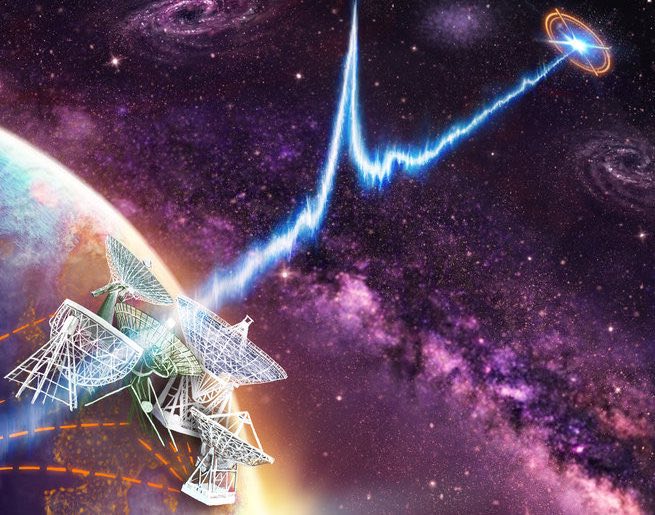
Repeating radio signals from a mysterious source in a dwarf galaxy 3 billion light-years away have been detected by astronomers.
Researchers at the Breakthrough Listen lab at the University of California Berkeley recently recorded 15 FRBs from FRB 121102 – the same FRB from last year.
“Bursts from this source have never been seen at this high a frequency,” said Breakthrough Listen director Andrew Siemion.
The series of bursts shows that the source is in a “newly active state,” said postdoctoral researcher Vishal Gajjar.
FRB 121102 was first detected in Australia on Nov. 2, 2012 and was observed to be the first repeating FRB in 2015.
In an interview with CBS-affiliate KPIX, UC Berkeley astronomer Steve Croft shed some light on what might be causing the FRBs.
“The leading theory is really all of this has something to do with neutron stars or maybe something to do with neutron stars with strong magnetic fields known as magnetars, and the way those magnetic fields interact with the materials surrounding them,” said Croft.
A neutron star is the dense core of a dead star.
An unpopular theory among scientists is that the signals are communication attempts from extraterrestrial beings.
“Aliens have no reason to specifically communicate with radio. They could communicate with something else,” McGill researcher Shriharsh Tendulkar.
However, Breakthrough Listen’s mandate is to find signs of intelligent life in the universe, and one of their more speculative theories is that perhaps the bursts are from extraterrestrial civilizations powering their spacecrafts.
The lab researchers hope that these 15 new FRBs will take them one step closer to discovering life beyond Earth.
“We do know that the universe is capable of producing intelligent civilizations that can produce technology,” said Siemion. “We do have to keep our minds open to the possibility when we’re doing any kind of astronomy.”













